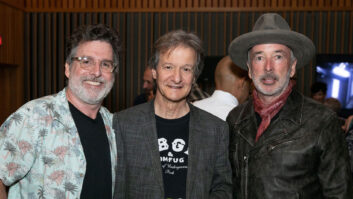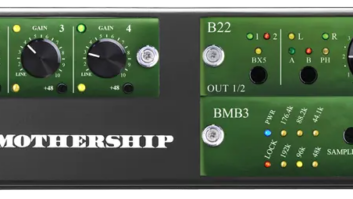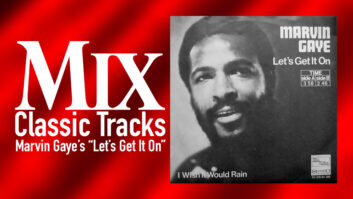The Turtles, a California rock group that performed from 1965 to 1970, had their first hit record in 1965, a cover of Bob Dylan’s “It Ain’t Me Babe.” Their most successful song, “Happy Together,” hit number one on the charts in 1967. Their music lives on, broadcast over the air and on the internet by Sirius XM, Pandora and others. Two of the founding members incorporated and own Flo & Eddie Inc., which owns the rights to the master recordings of the Turtles music.
Federal copyright statutes, which generally preempt state law, have protected musical compositions since 1831. But that protection benefitted only composers (and their assignees) until February 15, 1972. On that date, an amendment to the Copyright Act designed to curtail piracy of phonograph records became effective. This amendment did not give copyright holders the right to prevent others from playing the records for public entertainment (over the air, for example), but only prohibited the unauthorized manufacture of copies.
While this amendment preempted all state law protection for sound recordings to which it applied, it specifically preserved (until 2067) state law protection for sound recordings made before February 15, 1972 (“Oldies”). In 1995, the Copyright Act was further revised to provide copyright holders with a right to royalties for playing recorded performances over the air, but only for transmissions in digital form. This right does not apply to Oldies, which are not eligible for federal copyright protection. Traditional analog radio stations have thus been spared the obligation to pay performance royalties when they broadcast recorded Oldies, but must pay royalties that benefit the composers of that music.
As a result, no federal law benefits the Turtles when their performance of “It Ain’t Me Babe” is played on the radio. They did not compose the song and their performance was recorded before February 15, 1972. Commercial radio stations and digital distributors of music such as Sirius XM and Pandora have never paid “performance royalties” for playing Oldies.
It has always accepted wisdom in the music industry that Oldies had no performance-based copyrights under any law, state or federal. That may all be about to change.
In 2013, Flo & Eddie brought suit against Sirius XM in California and New York, alleging infringement of the rights under the copyright law of those states for the unauthorized broadcast of Oldies. Not to be outdone, major record labels including Sony, UMG and Warner brought suit against Sirius XM in California state court on the same theory.
Sirius resisted the claims by arguing that the relevant state courts had never ruled that state copyright law protected performances of recordings and thus no such protection exists. As Sirius XM pointed out, the broadcast and recording industries had for decades operated on the assumption that no law required broadcasters to pay performance royalties for broadcasting Oldies. Were they wrong? Three courts—two in California and one in New York—have recently ruled that they were.
The federal court reviewed a 1982 California statute pertaining to copyright in sound recordings. That statute, section 980 of the California Civil Code, was modeled after the federal statute but addressed only recordings made before February 15, 1972. It gave the “author” of a sound recording the exclusive rights to that recording. The statute contains a single exception, following one found in the federal Copyright Act, permitting unauthorized “covers” of recordings provided that the performers actually perform the music themselves and do not merely electronically copy the sound from the first recording.
This express exception led the federal court to conclude that the California legislature had not intended any additional exceptions to be inferred. The court thus granted Flo & Eddie’s motion for summary judgment in its favor. The judge presiding over the California state court proceeding was persuaded by the logic of the federal court ruling and issued an order advising the jury that such performance rights for Oldies exist under California law.
The federal court in New York did not have a state statute to interpret. Instead, it reviewed this history of common law copyright protection in New York State. While it could not find a New York case on point, the court concluded that New York common law would provide the owners of the copyright in sound recordings with a right to restrict their performance. The court said that it was inclined to enter judgment in favor of Flo & Eddie as to liability and proceed to a hearing on damages.
Flo & Eddy brought their lawsuits as class actions on behalf of itself and copyright owners of all sound recordings made before February 15, 1972. As a result, the potential liability of Sirius XM and other as-yet unnamed defendants (probably including DISH and DirectTV) is quite large.
These lawsuits have a long way to go. The class actions have not been certified, damages have not yet been addressed and appeals are likely. Nonetheless, these lawsuits have enormous potential implications for radio stations, webcasters, retail stores, restaurants, nightclubs and any other venues where Oldies are heard, as well as for internet service providers who distribute Oldies.
National broadcasters and internet service providers face a potentially chaotic situation if they are faced with a patchwork of royalty demands arising under numerous state laws. A uniform national licensing system would be a way out of this morass. Such a system is proposed in H.R 4772 (the “RESPECT Act”), which would extend to Oldies the royalty system now applicable to newer music, and also preempt applicable state law. Perhaps these recent court decisions will light a fire under Congress and prompt it to enact that bill.
Digital transmitters of music have been paying performance royalties on newer music since 1995, so paying royalties on Oldies may be nothing more than a nuisance to them. But terrestrial radio stations have never paid performance royalties, so don’t be surprised if you hear fewer Oldies while these lawsuits continue to wind their ways through the courts. And classical music fans should not be surprised if pre-1972 recordings of classical music start to disappear from the airwaves as well. The Turtles’ class actions do not discriminate by musical style.
Tom Carey is chair of the Business Practice Group at Sunstein Kann Murphy & Timbers LLP. he assists technology companies and inventors in forming business entities, capital raising, protecting intellectual property and monetizing it.







